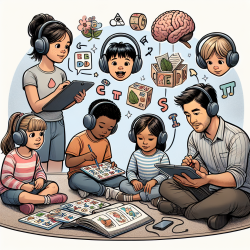In a recent study titled "Remote Training of Dental Students and Professionals to Promote Cooperative Behavior in Patients with Intellectual and Developmental Disabilities," researchers Matteucci, Lerman, Tsami, and Boyle (2022) explored the efficacy of remote behavioral skills training (BST) for dental students and professionals. The findings hold significant implications for practitioners aiming to improve their skills and for those interested in further research.
Understanding the Research
The study aimed to address the common issue of uncooperative behavior among patients with intellectual and developmental disabilities (IDD) during dental exams. This behavior often leads to poor oral health in this population. The researchers utilized remote BST to train dental students and professionals in implementing a practical intervention that included tell-show-do, contingent praise, and noncontingent reinforcement.
The results were promising. Group training via videoconferencing effectively taught six of seven participants to implement the intervention without the need for post-training feedback. This approach demonstrates the potential for quickly and efficiently training current and future dental professionals in behavior techniques that promote patient compliance.
Implementing the Outcomes
Practitioners can implement the outcomes of this research to enhance their skills in managing patients with IDD. Here are some key takeaways:
- Tell-Show-Do: Explain the procedure, demonstrate it, and then perform it on the patient.
- Contingent Praise: Provide praise immediately after the patient complies with a step in the procedure.
- Noncontingent Reinforcement: Offer frequent breaks or continuous access to preferred items to reduce anxiety and increase cooperation.
These techniques are relatively easy to incorporate into routine dental exams and can significantly improve patient cooperation. Practitioners should consider incorporating these strategies into their practice and seek out remote BST opportunities to further enhance their skills.
Encouraging Further Research
While the study provides valuable insights, further research is needed to explore the long-term effectiveness and acceptability of these training methods. Practitioners and researchers alike should consider investigating:
- The impact of remote BST on different age groups and severity levels of IDD.
- Cost-effective ways to implement remote BST in dental schools and continuing education programs.
- The potential for remote BST to be adapted for other healthcare professionals working with patients with IDD.
To read the original research paper, please follow this link: Remote Training of Dental Students and Professionals to Promote Cooperative Behavior in Patients with Intellectual and Developmental Disabilities.










